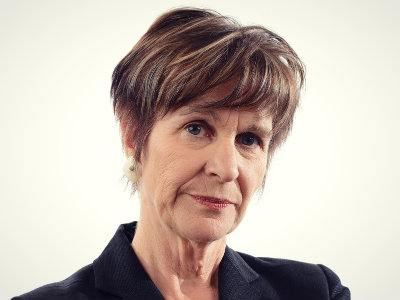
Community Care and Unison’s Social Work Watch survey revealed the personal sacrifices many social workers make on a daily basis to get the job done. Here, we round up some of the reaction from key organisations in the sector (please add your own comments below).
Annie Hudson, chief executive of The College of Social Work (pictured), said:
“Firstly, it was very good to learn that over 80% of respondents could provide clear examples of how their work is making a real difference to the lives of service users. This demonstrates not only the commitment but also the expertise that social workers across the country bring every day to their work with children, adults and families, demonstrating commitment and high calibre practice in what is self-evidently a very emotionally and intellectually demanding profession.
“The College is concerned about the impact of workload pressures on the time that social workers are able to spend undertaking direct work with service users and reflecting on their practice. The revised employer standards, published by the Local Government Association this week, emphasise clearly that employers should be implementing effective workforce strategies to improve staff morale and retention rates, to ensure safe workloads and to provide social workers with quality supervision and opportunities for professional development. The College encourages social work employers to implement these critical measures to enable social workers to use their expertise to the very best effect.”
Andrew Webb, immediate past president of the Association of Directors of Children’s Services, said:
“The challenges facing children’s social workers are more acute than ever before, especially in a climate of diminishing resources, increasing demands and heightened media scrutiny. What the results of this survey show are that despite these pressures, social workers remain committed to making sure they are spending quality time visiting children, young people and their families.
“Social work decisions are at the heart of processes that support families, protect vulnerable people and enable choice (and account for over half the revenue spending of most local authorities), that is why it is vitally important that local authorities continue to invest in strengthening the social work profession, building on the progress already made by existing reform programmes, and those reforms that are to follow on from the recent reports into social work education written by Sir Martin Narey and Professor David Croisdale-Appleby.
“As the results of this survey imply, the skill set required to be an effective social worker include resilience, highly developed interpersonal skills, and the ability to make finely tuned professional judgments whilst balancing the demands of necessary administration.”
Maris Stratulis, England manager at the British Association of Social Workers, said:
“The results of the survey certainly reflect what BASW members are telling us; that they are working over and above their core hours, working during the weekends and that the day job does have an impact on their personal lives.
“It is a real credit to the dedication, hard work and professionalism of the respondents that so many felt they had made a positive difference to the lives of the children, families and adults that they work with. That is what good social work is all about.
“Time and time again we are hearing that paperwork, ICT systems and bureaucratic processes have still not been streamlined or minimised. This must be a priority focus for employers across the sector, in addition to the promotion and implementation of the employer standards and wellbeing of staff.”


 Bournemouth, Christchurch and Poole
Bournemouth, Christchurch and Poole  Hampshire County Council
Hampshire County Council  Lincolnshire County Council
Lincolnshire County Council  Norfolk County Council
Norfolk County Council  Northamptonshire Children’s Trust
Northamptonshire Children’s Trust  South Gloucestershire Council
South Gloucestershire Council  Wiltshire Council
Wiltshire Council  Wokingham Borough Council
Wokingham Borough Council  Children and young people with SEND are ‘valued and prioritised’ in Wiltshire, find inspectors
Children and young people with SEND are ‘valued and prioritised’ in Wiltshire, find inspectors  How specialist refugee teams benefit young people and social workers
How specialist refugee teams benefit young people and social workers  Podcast: returning to social work after becoming a first-time parent
Podcast: returning to social work after becoming a first-time parent  Podcast: would you work for an inadequate-rated service?
Podcast: would you work for an inadequate-rated service?  Family help: one local authority’s experience of the model
Family help: one local authority’s experience of the model  Workforce Insights – showcasing a selection of the sector’s top recruiters
Workforce Insights – showcasing a selection of the sector’s top recruiters 

 Facebook
Facebook X
X LinkedIn
LinkedIn Instagram
Instagram
Comments are closed.